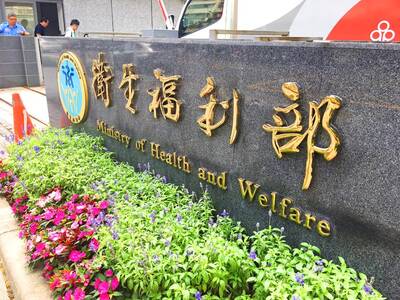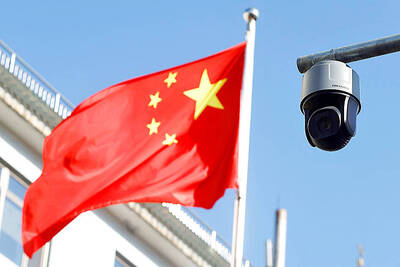About 31 percent of all workers in Taiwan earned less than NT$30,000 per month this year, falling for the eighth consecutive year, according to the Directorate-General of Budget, Accounting and Statistics (DGBAS).
The agency this week published the results of its yearly income survey, conducted in mid-May, which found that 31.47 percent of 8.62 million people in regular employment, or 2.71 million people, earned less than NT$30,000, compared with 44.39 percent in 2009.
Premier William Lai (賴清德) earlier this week said that low-income jobs have been on the decline over the past few years and account for only about 30 percent of total employees.
The decline in low-income earners was due to efforts to boost the economy and improve the job market, Lai said.
DGBAS deputy head Tsai Hung-kun (蔡鴻坤) said that the number of workers who earned less than NT$30,000 a month this year fell by about 220,000, or 2.86 percent, from last year.
The downtrend has continued for eight years in a row, which shows that the wage structure in Taiwan has been changing, Tsai said.
The data also showed that 18.94 percent of employees earned more than NT$50,000 a month this year, compared with 15.99 percent in 2009, marking the eighth consecutive yearly increase.
Tsai said this showed that salaries in Taiwan are on the rise.
Monthly basic wages rose 1.63 percent from last year to NT$38,656, the data showed.
So-called “atypical employees,” who work on a part-time basis or on temporary contracts, totaled 805,000 this year, or 7.11 percent of the total workforce, the highest level to date and up 13,000 from last year, the data showed.
Despite the increase in atypical employees, their share in the total workforce was still lower than in neighboring countries such as Japan and South Korea, where the percentage topped 20 percent, the agency said.

POLAM KOPITIAM CASE: Of the two people still in hospital, one has undergone a liver transplant and is improving, while the other is being evaluated for a liver transplant A fourth person has died from bongkrek acid poisoning linked to the Polam Kopitiam (寶林茶室) restaurant in Taipei’s Far Eastern Sogo Xinyi A13 Department Store, the Ministry of Health and Welfare said yesterday, as two other people remain seriously ill in hospital. The first death was reported on March 24. The man had been 39 years old and had eaten at the restaurant on March 22. As more cases of suspected food poisoning involving people who had eaten at the restaurant were reported by hospitals on March 26, the ministry and the Taipei Department of Health launched an investigation. The Food and

A fourth person has died in a food poisoning outbreak linked to the Xinyi (信義) branch of Malaysian restaurant chain Polam Kopitiam (寶林茶室) in Taipei, Deputy Minister of Health and Welfare Victor Wang (王必勝) said on Monday. It was the second fatality in three days, after another was announced on Saturday. The 40-year-old woman experienced multiple organ failure in the early hours on Monday, and the family decided not to undergo emergency resuscitation, Wang said. She initially showed signs of improvement after seeking medical treatment for nausea, vomiting and diarrhea, but her condition worsened due to an infection, he said. Two others who

MEDICAL: The bills would also upgrade the status of the Ethical Guidelines Governing the Research of Human Embryos and Embryonic Stem Cell Research to law The Executive Yuan yesterday approved two bills to govern regenerative medicine that aim to boost development of the field. Taiwan would reach an important milestone in regenerative medicine development with passage of the regenerative medicine act and the regenerative medicine preparations ordinance, which would allow studies to proceed and treatments to be developed, Deputy Minister of Health and Welfare Victor Wang (王必勝) told reporters at a news conference after a Cabinet meeting. Regenerative treatments have been used for several conditions, including cancer — by regenerating blood cells — and restoring joint function in soft tissue, Wang said. The draft legislation requires regenerative treatments

Taiwanese should be mindful when visiting China, as Beijing in July is likely to tighten the implementation of policies on national security following the introduction of two regulations, a researcher said on Saturday. China on Friday unveiled the regulations governing the law enforcement and judicial activities of national security agencies. They would help crack down on “illegal” and “criminal” activities that Beijing considers to be endangering national security, according to reports by China’s state media. The definition of what constitutes a national security threat in China is vague, Taiwan Thinktank researcher Wu Se-chih (吳瑟致) said. The two procedural regulations are to provide Chinese